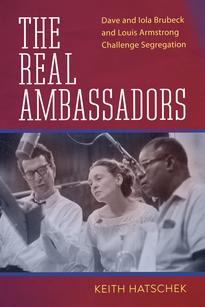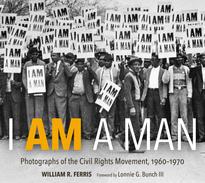Civil Rights
The South Strikes Back
In The South Strikes Back, Hodding Carter III describes the birth of the white Citizens’ Council in the Mississippi Delta and its spread throughout the South. Originally published in 1959, this book ...
The Real Ambassadors
Winner of the 2023 ASCAP Foundation Deems Taylor/Virgil Thomson Book Award
Recipient of a 2023 Certificate of Merit for Best Historical Research in Recorded Jazz from the Association for Recorded Sound ...
The Artistic Activism of Elombe Brath
In 1963, at the height of the southern civil rights movement, Cecil Brathwaite (1936–2014), under the pseudonym Cecil Elombe Brath, published a satire of Black leaders entitled Color Us Cullud! The ...
Black Boys Burning
On the morning of March 5, 1959, Luvenia Long was listening to gospel music when a news bulletin interrupted her radio program. Fire had engulfed the Arkansas Negro Boys Industrial School in Wrightsville, ...
I AM A MAN
In the American South, the civil rights movement in the 1960s and the struggle to abolish racial segregation erupted in dramatic scenes at lunch counters, in schools, and in churches. The admission of ...
City Son
In 1966, a year after the Voting Rights Act began liberating millions of southern blacks, New Yorkers challenged a political system that weakened their voting power. Andrew W. Cooper (1927–2002), a ...
Emanuel Celler
Congressman Emanuel Celler (1888–1981) was a New York City congressman who served in the United States House of Representatives from 1923 to 1973. Celler’s almost fifty-year career was highlighted ...
The Racial Divide in American Medicine
Contributions by Richard D. deShazo, John Dittmer, Keydron K. Guinn, Lucius M. Lampton, Wilson F. Minor, Rosemary Moak, Sara B. Parker, Wayne J. Riley, Leigh Baldwin Skipworth, Robert Smith, and William ...
Voices from the Mississippi Hill Country
Voices from the Mississippi Hill Country is a collection of interviews with residents of Benton County, Mississippi—an area with a long and fascinating civil rights history. The product of more than ...
The War on Poverty in Mississippi
President Lyndon B. Johnson’s war on poverty instigated a ferocious backlash in Mississippi. Federally funded programs—the embodiment of 1960s liberalism—directly clashed with Mississippi’s closed ...









